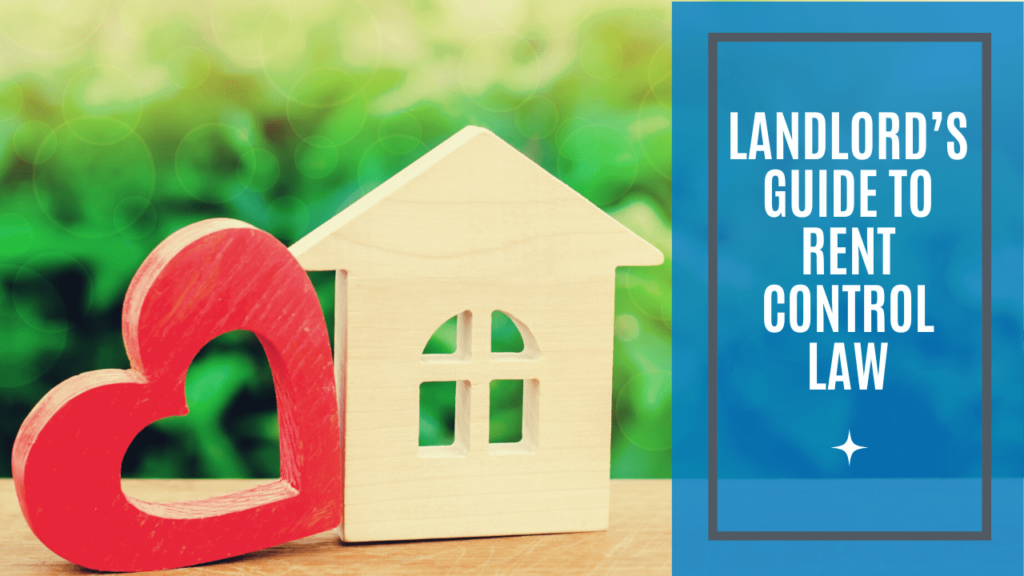Landlord’s Guide to California’s Rent Control Law

It has been almost two years since California’s Tenant Protection Act went into effect. While it would have been a pretty big deal during most of 2020, the rental industry was instead occupied with eviction moratoriums and what the pandemic meant for rental properties throughout the state.
The pandemic may or may not be over depending on who you ask, but the eviction moratorium has indeed ended and now we can turn our attention to rent control. The Tenant Protection Act brought rent control to the entire state of California and also set forth standards for just cause evictions.
If you’re renting out a home in Palm Desert, it’s important you understand the details of this sweeping rent control law.
This new ordinance goes further than rent control. It also touches on fair housing and includes new regulations on evictions and Section 8 tenants. You have to be in compliance, and it’s not always easy to understand on your own. If you’re in doubt about what you need to do or whether your property is impacted directly, talk to a landlord/tenant attorney or a property manager.
Here’s our brief introductory guide to California’s rent control law and what it likely means for your own property.
Palm Desert Rental Properties and AB-1482
Not all Palm Desert rental properties will be affected by the statewide rent control law, and your participation and compliance will mostly depend on the age of the property, the type of property, and whether the owner is an individual or a corporation.
- The new rent control law applies to any property that has not been issued a certificate of occupancy in the last 15 years. If your property was constructed 15 or more years ago and it’s a multifamily residence, this law would likely apply to you.
You also need to know that it’s a rolling 15 years. So, a building that began leasing units in 2010 isn’t subject to rent control right now, but it will fall into the rent control requirements in 2025.
- The rent control law excludes most single-family dwellings and condos unless you are a real estate corporation or a real estate investment trust. If you’re a private landlord or a single investor, and you’re renting out the single-family home you once lived in or a condo, you will not be subject to the statewide rent control laws. The law does not apply to you if you own a duplex and you’re living in one unit and renting the other out.
The purpose of this law is to restrict the frequency and amount of rental increases on corporate-owned properties and large apartment buildings. If you’re an individual investor, you are probably exempt unless you own some multi-family units of a certain age.
Leasing Requirements and Tenant Information
Tenants across California were understandably in favor of statewide rent control.
However, not all tenants understand which properties are subject to rent control and which are excluded from it.
If you’re included in the rent control law, you’ll want to put something in your lease agreement to reflect that. It’s even more important to adjust your lease agreement if you’re exempt from the law. You want to notify your residents that the property they’re living in does not fall under this new law. This will eliminate confusion and disputes.
Raising the Rents: Limits under Rent Control Laws
If your investment property is subject to the new rent control law, these are the basics of how and when you can increase your rent:
- Over the course of any 12-month period, you cannot increase the rental rate more than five percent plus the percentage change in the cost of living, or 10 percent, whichever is lower.
- If your tenant has been in the unit for more than 12 months, the rental rate cannot be increased in more than two increments over the 12-month period.
- When you have a vacant unit, you can set the rental rate as high as you want before those tenants take possession. But, once residency is established, the new law applies.
Keep in mind that this will look different to every owner, depending on the type of unit you’re renting and the way you structure your rent increases. Talk to an attorney or an experienced Palm Desert property manager before you make any rental increases, just to be sure you’re compliant.
If you are exempt from the rent control laws, you still want to pay attention to where the Consumer Price Index (CPI), which sets the cost of living increase, resets every year. You don’t want to raise your rents too much or you won’t remain competitive in the Palm Desert rental market.
Just Cause Evictions in Palm Desert and California

There’s more to the rent control law than rent increases. There are also new requirements for evictions.
In the past, you weren’t required to renew a lease with your tenant. If you wanted to move on or look for another tenant, you simply did not renew the lease agreement. Under the new law, there is a clause that focuses on just-cause termination of every tenancy. There are at-fault lease terminations or evictions and no-fault lease terminations or evictions.
- An at-fault lease termination or a just cause eviction would be due to nonpayment of rent or breach of the lease agreement. If a tenant is found to be conducting criminal behavior inside the home, they can be evicted immediately.
- No-fault lease terminations occur when an owner wants to move back into the property or has plans to demolish the property and build something else. With the no-fault termination of a lease, you will be responsible for compensating that tenant for relocation expenses which equal the amount of one month’s rent.
Rent control and just cause eviction laws require your attention, even if your property is exempt from them.
Questions about how to remain in compliance with the rent control law? We can help. To learn more about our property management services in Palm Desert and California, please contact us at Xepco Properties.

